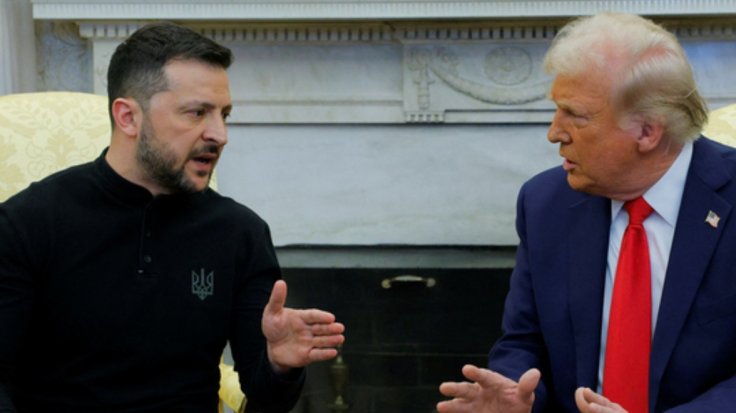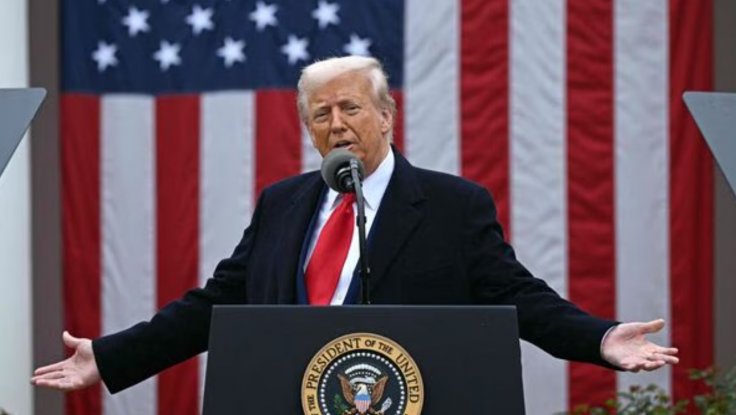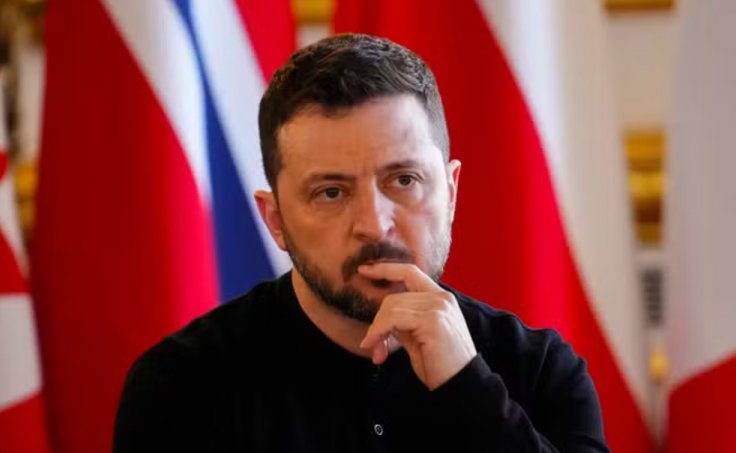The Trump administration and the Ukrainian government officially finalized a deal on Wednesday, creating a joint fund to boost the rebuilding of Ukraine, with a focus on attracting investment into the country's oil, gas, and rare mineral sectors.
The deal will give the United States priority access to new investment opportunities in Ukraine's natural resource industries, including aluminum, graphite, oil, and natural gas. The much-awaited deal was signed after President Donald Trump for weeks pressured Ukraine to compensate the United States for the billions of dollars provided in military and economic aid to help the country resist the Russian invasion for more than three years and help end the war.
Big Win for Trump Administration

The Trump administration introduced a new type of U.S. support for Kyiv after the end of direct military aid. Trump has pushed for a negotiated resolution that would involve Ukraine surrendering parts of the land seized by Russia, although Moscow has rejected U.S.-supported proposals for even a temporary 30-day ceasefire.
On Wednesday, Ukraine's Economy Minister, Yulia Svyrydenko, wrote on X that the reconstruction fund would be co-managed equally by both nations and that any future U.S. military aid might be counted as a contribution to the fund.

"Together with the United States, we will create a fund that will attract Western investments to our country," Svyrydenko said. "We will manage this fund jointly with the United States. Neither party will have a majority vote, reflecting an equal partnership between Ukraine and the United States."
The fund will be financed solely through revenue generated from newly issued licenses "for projects in the field of critical materials and oil and gas," which will be divided 50/50 by the U.S. and Ukraine, Svyrydenko said.
The United States will also make additional contributions to the fund, which may come in the form of new support — such as "providing air defense systems to Ukraine."

She added that the United States "will help attract additional investment and technology" to generate more business for the fund, which will be backed by the U.S. International Finance Corporation, also known as the "DFC."
"DFC will help us attract investments and technologies from funds and companies in both the US and the EU and other countries that support our fight against the Russian enemy," Svyrydenko said.
"The Fund will then invest in mineral and oil and gas projects, as well as related infrastructure or processing. The specific investment projects to which the funds will be directed will be determined jointly by Ukraine and the United States."
Almost Unconditional from Ukraine's Side
Svyrydenko said that, with the signing of the deal, Ukraine "expects that 'for the first 10 years, the fund's profits and revenues will not be distributed, but can only be invested in Ukraine," but also mentioned that "these conditions will be discussed further."

She also said that the fund will not be taxed "so that investing yields the greatest possible results."
In a statement announcing the agreement, the Treasury Department touched on the United States' earlier help to Ukraine throughout the 38-month-long Russian invasion.
"In recognition of the significant financial and material support that the people of the United States have provided to the defense of Ukraine since Russia's full-scale invasion, this economic partnership positions our two countries to work collaboratively and invest together to ensure that our mutual assets, talents, and capabilities can accelerate Ukraine's economic recovery," the statement read.
However, Svyrydenko emphasized that "the agreement does not include any debt obligations from Ukraine to the U.S.," which had been a major concern for Kyiv during negotiations.

A draft of the framework agreement had been in circulation for at least two months and was expected to be finalized on February 28. However, that day, a heated argument broke out in the Oval Office between Ukrainian President Volodymyr Zelensky, Trump, and Vice President JD Vance, resulting in Zelensky leaving without signing the deal.
Svyrydenko added she expects the agreement to "become a signal to other global players that it is reliable to cooperate with Ukraine in the long term — for decades."
"This is an Agreement in which the United States notes its desire to contribute to achieving long-term peace in Ukraine and recognizes the contribution that Ukraine has made to global security by abandoning its nuclear arsenal," she said, referencing the 1994 Budapest Memorandum, in which Russia promised not to invade Ukraine in exchange for Kyiv giving up its Soviet-era nuclear weapons.









